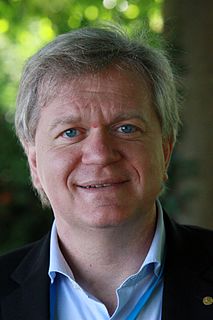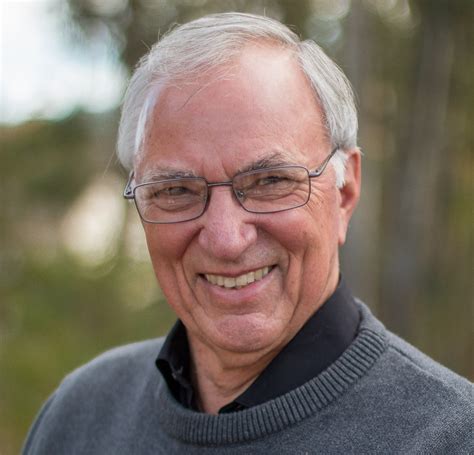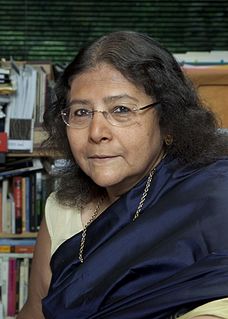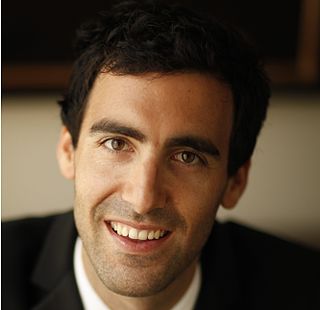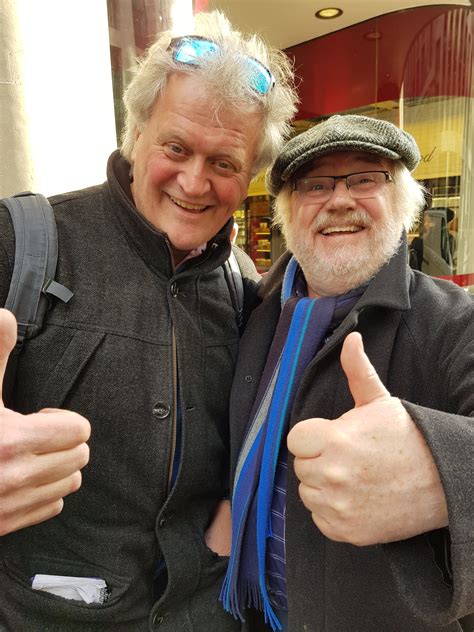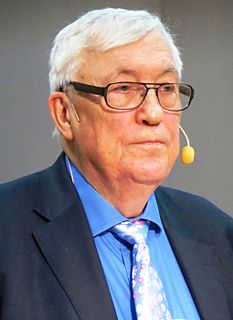A Quote by Amanda Seales
Every New Year comes with a list of predictions. Self-predictions, world predictions, how many times Lindsay Lohan will get arrested predictions, etc. I reserve the annual trend for people with genuine psychic ability and/or bloggers.
Related Quotes
I have been a biologist for a long time, and I hope I never stop getting shivers in my spine when I think about the beauty of how we come to know things in biology. Biologists make predictions, then they go out into the field or the lab to see if their predictions hold up. When hundreds of predictions of this sort are fulfilled, a theory reaches the point where it becomes certain, at least on a broad level. And that is where we are with evolution.
Climate change is there as a reminder that we can get richer and safer societies that are also consuming more and more to the point where the stability of Earth's systems is being challenged at potentially catastrophic levels. I don't think we can stop that. Just the very same worries I have about prediction on the positive progressive side - I mean, predictions that say we'll be great, we'll be fine - also apply to predictions that are too catastrophic. I'm not sure we get those predictions right either.
It is ... a sign of the times-though our brothers of physics and chemistry may smile to hear me say so-that biology is now a science in which theories can be devised: theories which lead to predictions and predictions which sometimes turn out to be correct. These facts confirm me in a belief I hold most passionately-that biology is the heir of all the sciences.
It makes no sense to seek a single best way to represent knowledge-because each particular form of expression also brings its particular limitations. For example, logic-based systems are very precise, but they make it hard to do reasoning with analogies. Similarly, statistical systems are useful for making predictions, but do not serve well to represent the reasons why those predictions are sometimes correct.
I have never seen myself as an alarmist but rather as a scientist with a critical viewpoint, and in that sense I have always been a skeptic. I have devoted most of my career to developing models for predicting the weather, and in doing so I have learned the importance of validating forecasts against observed weather. As a result, that's an approach I strongly favor for "climate predictions." It's essential to validate model results, especially when dealing with complex systems such as the climate. It's essential do so properly if such predictions are to be considered credible.
I make predictions about what I'm going to do before a fight, that makes me nervous because I've gotten so good at it until people really look for me to do it.If I say the man's going to fall in round five, like your man Henry Cooper here, he was stopped in round five but it was on a cut - it wasn't because he was out. But usually 'm on the spot with my predictions and some people really gamble and bet money on the rounds I say.


